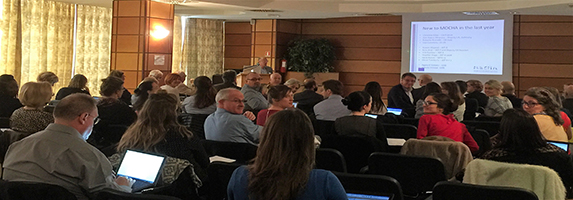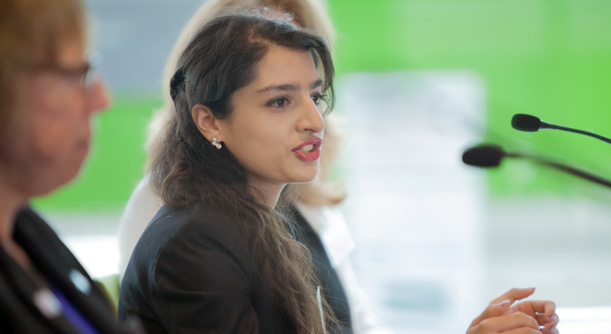The Models of Child Care Appraised (MOCHA) project held its General Assembly meeting in Rome on the 20 October 2016. The EPF Youth Group Chair, Aneela Ahmed tells us about her experience as a participant.
The MOCHA project meeting and General Assembly turned out to be a very interesting experience. In the backdrop of the scenic and historic roman ruins proved to be a fitting setting for the first General Assembly. The current research is broken down into work packages that help to organise and categorise the research for an easier dissemination into different languages. The General Assembly helped to humanise the researchers for stakeholders allowing engagement of country agents, stakeholders and External Advisory Board (EAB) Members which included the voice of young patients through a designated member of the EPF Youth Group.
Many issues were raised by the youth delegate concerning issues surrounding transition, the current chart and what is included as essential factors relating to child health, the current primary health system and how it may or may not fit the needs of children across Europe. We welcomed colleagues from Australia and America to help advise on specialist issues related to public health whilst continuing the dialogue between existing EAB members on how we could contribute towards promotion and finding connections for research.
It was particularly insightful to hear the recommendations from colleagues who were well versed and informed through the research and knowledge they had through their organisation however, it must be noted that it was imperative for YG member presence. Simply, due to the insight and issues that could go amiss when discussing primary health care for children and young people when direct consultations cannot be implemented. It was a successful meeting and the future of this project for both the MOCHA team and our young patients looks a little brighter because of it.

